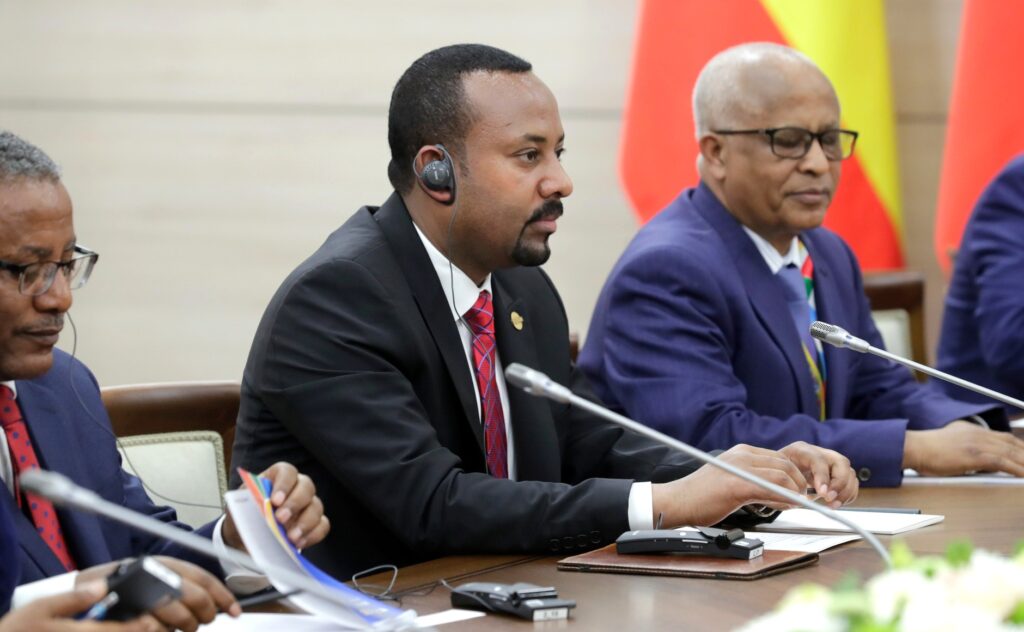In the realm of contemporary leadership, few figures stand out as brightly as Abiy Ahmed, the Prime Minister of Ethiopia. Born on August 15, 1976, in Beshasha, a small town in the Gomma district of Jimma Zone, Abiy Ahmed has emerged as a transformative force not only within Ethiopia but also on the global stage. His life’s journey is a testament to resilience, vision, and an unwavering commitment to positive change.
Page Contents
Early Life and Education
Abiy Ahmed’s early years were marked by the turbulence of political unrest in Ethiopia. His father, Ahmed Ali, was a Muslim farmer, and his mother, Tezeta Wolde, a Christian. Growing up in a diverse cultural and religious environment, Abiy developed a deep understanding of unity in diversity—a theme that would later become a cornerstone of his political ideology.
Abiy’s education began in Beshasha, and he later attended elementary and high school in Agaro, Jimma. His academic prowess earned him a scholarship to the Microlink Information Technology College in Addis Ababa, where he pursued a degree in computer engineering. Abiy’s time in the capital exposed him to the complexities of urban life and the stark contrast between rural and urban Ethiopia, planting the seeds of his future commitment to social justice.
Read Also : Benjamin Netanyahu: The Resilient Leader of Israel
Military Service and Peacekeeping
Abiy Ahmed’s journey took an unexpected turn when he joined the Ethiopian National Defense Force in 1993. Serving as a radio operator, he experienced the harsh realities of conflict in Ethiopia, including the border war with Eritrea. Despite the challenges, Abiy rose through the ranks, showcasing leadership qualities that caught the attention of his superiors.
His commitment to peace became evident when Abiy participated in United Nations peacekeeping missions in post-conflict areas such as Rwanda and Mozambique. These experiences deepened his understanding of the devastating consequences of war and the urgent need for diplomacy and conflict resolution.
Intellectual Pursuits
Abiy Ahmed’s military service did not quench his intellectual thirst. While serving in the army, he continued his education, earning a master’s degree in transformational leadership and change from the International Leadership Institute in Addis Ababa. This academic pursuit laid the foundation for Abiy’s future endeavors in political leadership and transformation.
Abiy’s commitment to learning extended beyond the classroom. He became fluent in several languages, including English, Amharic, and Oromo, reflecting his dedication to fostering unity among Ethiopia’s diverse ethnic groups.
Political Ascent
Abiy Ahmed’s entry into politics occurred against the backdrop of Ethiopia’s political unrest in the early 2000s. In 2010, he became a member of the Oromo People’s Democratic Organization (OPDO), a key constituent of the ruling Ethiopian People’s Revolutionary Democratic Front (EPRDF). Abiy’s political rise within the OPDO was meteoric, and in 2018, he assumed the position of chairman, marking a turning point in Ethiopian politics.

A Beacon of Hope: Nobel Peace Prize
Abiy Ahmed’s leadership style emphasizes inclusivity and reconciliation. One of his most significant achievements came in 2019 when he was awarded the Nobel Peace Prize for his efforts to end the longstanding conflict with neighboring Eritrea. The peace agreement, signed in July 2018, brought an end to two decades of hostilities and opened a new chapter of cooperation between the two nations.
Abiy’s approach to diplomacy and conflict resolution has inspired leaders worldwide. His commitment to dialogue, compromise, and the pursuit of common goals highlights a refreshing departure from traditional models of leadership based on power politics.
Social Reforms and Nation-Building
Abiy Ahmed’s vision for Ethiopia extends beyond the realm of international diplomacy. Domestically, he has spearheaded a series of reforms aimed at fostering national unity, economic development, and social justice. One of his boldest moves was the release of political prisoners and the lifting of restrictions on political parties, signaling a commitment to inclusive governance.
Recognizing the importance of women in nation-building, Abiy Ahmed appointed women to prominent positions within his cabinet, breaking traditional gender barriers in Ethiopian politics. These initiatives underscore his dedication to building a more equitable and inclusive society.
Economic Initiatives and Infrastructure Development
Abiy Ahmed’s leadership is characterized by a forward-thinking approach to economic development. Under his guidance, Ethiopia launched the Homegrown Economic Reform Agenda, a comprehensive plan aimed at revitalizing the economy through sustainable development strategies. The agenda prioritizes sectors such as agriculture, manufacturing, and technology, with a focus on job creation and poverty reduction.
Infrastructure development has been a key pillar of Abiy’s economic vision. The Grand Ethiopian Renaissance Dam (GERD), a mega-dam project on the Nile River, symbolizes Ethiopia’s determination to harness its natural resources for the benefit of its people. While the project has faced regional challenges, Abiy’s unwavering commitment to completing it reflects his determination to secure Ethiopia’s energy independence.
Challenges and Criticisms
Despite his many achievements, Abiy Ahmed’s leadership has not been without challenges and criticisms. The complexity of Ethiopia’s ethnic and political landscape has posed difficulties in implementing reforms, and his government has faced criticism for issues such as press freedom and human rights abuses.
The Tigray conflict, which erupted in late 2020, has been a significant test of Abiy’s leadership. The conflict has resulted in humanitarian crises, drawing international concern. Abiy’s response to the crisis has faced criticism, highlighting the delicate balance between security concerns and the protection of human rights.
Read Also : Narendra Modi: A Visionary Leader’s Journey to Transform India
Legacy and Future Prospects
Abiy Ahmed’s biography is still unfolding, and the full impact of his leadership on Ethiopia and the wider Horn of Africa region remains to be seen. His journey from a small town in Jimma to the Nobel Peace Prize stage is a testament to the transformative power of leadership grounded in vision, resilience, and a commitment to positive change.
As Abiy continues to navigate the complex challenges facing Ethiopia, his legacy will be shaped by his ability to reconcile diverse interests, build a more inclusive society, and steer the nation towards sustainable economic development. The story of Abiy Ahmed serves as an inspiring narrative, reminding us that even in the face of adversity, visionary leadership has the potential to reshape the course of nations and leave an indelible mark on history.


